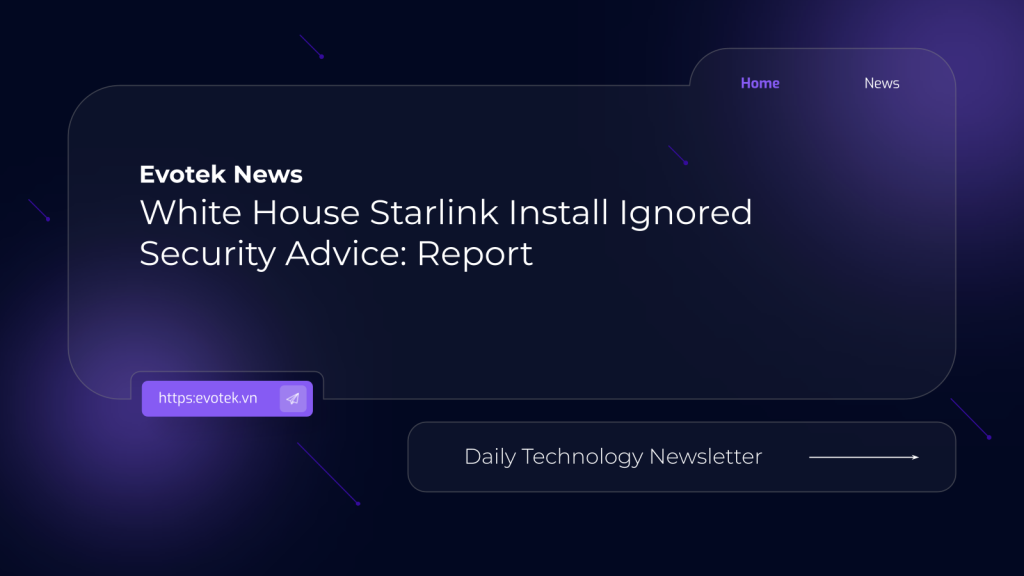A new report alleges that the Trump administration, with the help of Elon Musk’s now-defunct Department of Government Efficiency (DOGE), bypassed IT security protocols when installing Starlink internet at the White House earlier this year.
According to The Washington Post, the installation of a Starlink terminal on the Eisenhower Executive Office Building roof occurred without informing key personnel overseeing White House communication systems.
Cybersecurity experts warn that improperly configured Wi-Fi networks can create significant vulnerabilities. A “Starlink Guest” network reportedly appeared on White House phones in February, requiring only a password for access, bypassing the standard username and multi-factor authentication measures.
Sources speaking to The Post anonymously indicated that White House staff lacked the ability to monitor the Starlink connection, raising concerns about potential data leaks or unauthorized access. The “Starlink Guest” network was reportedly still detectable on visitors’ phones this week.
The status of the Starlink terminal, post Elon Musk’s departure from the Trump administration, remains unclear. Neither SpaceX nor Elon Musk have commented on these reports.
However, Secret Service spokesman Anthony Guglielmi stated, “We were aware of DOGE’s intentions to improve internet access on the campus and did not consider this matter a security incident or security breach.”
This incident surfaces amidst growing concerns within government agencies regarding over-reliance on SpaceX’s technology. NASA and the Pentagon are reportedly encouraging SpaceX competitors to accelerate development of alternative launch systems. This push comes after a public feud between Musk and President Trump, which included Musk threatening to halt SpaceX Dragon missions to the International Space Station, a threat he later retracted.
The situation underscores the potential risks of deploying new technologies without adhering to established security protocols, particularly within sensitive government environments.

 日本語
日本語 한국어
한국어 Tiếng Việt
Tiếng Việt 简体中文
简体中文